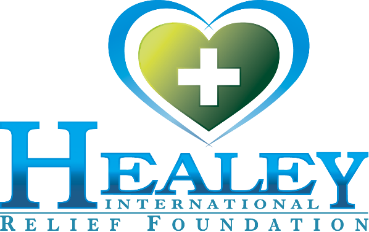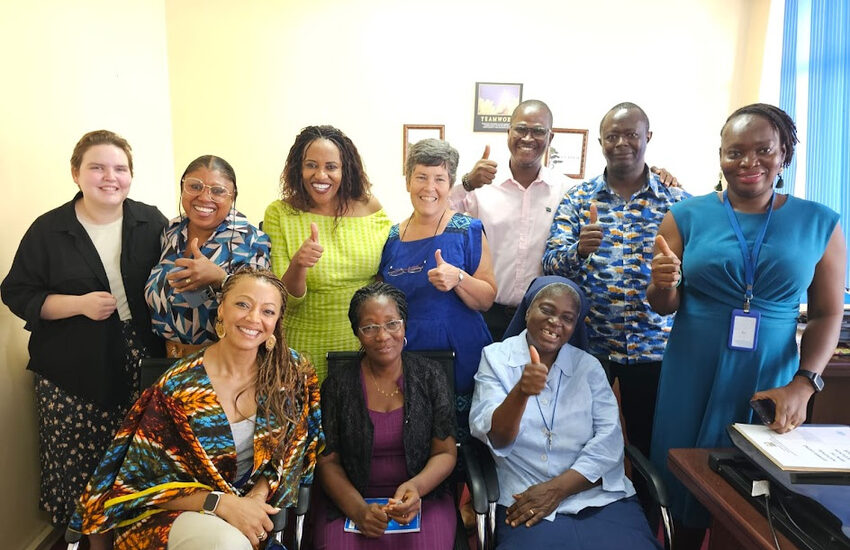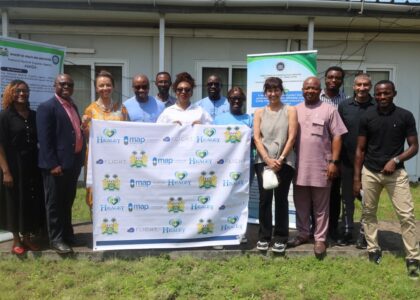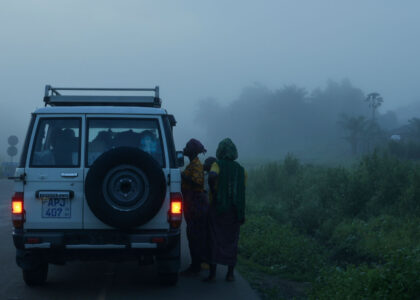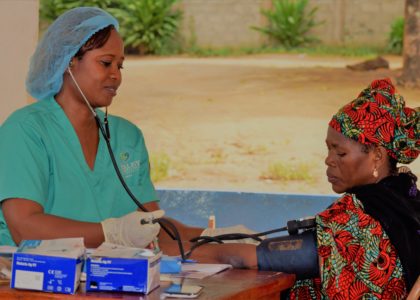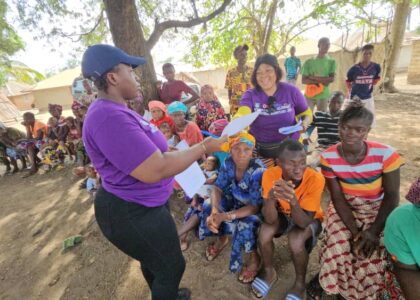A country’s maternal mortality reflects its capacity to care for its most vulnerable citizens– expectant mothers and children. The death of a mother can have profound economic impacts on a family, as mothers contribute substantially to household income. The loss of income combined with funeral costs can severely impact a family’s ability to sustain and thrive economically. Children whose mothers die in childbirth have a higher risk of dying before the age of five and are vulnerable to child marriage, malnutrition, and decreased access to education opportunities.
Increased Focus Needed
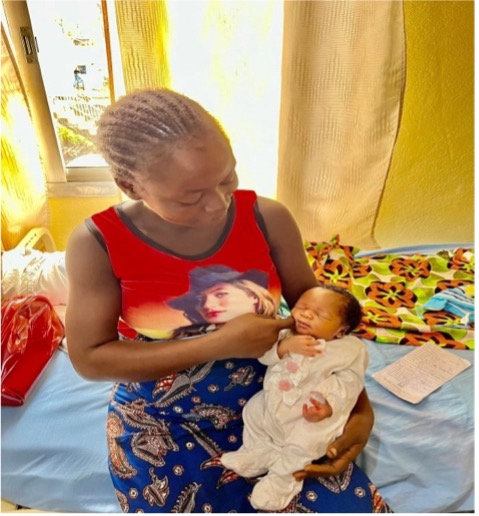
While maternal mortality rates have improved in Sierra Leone, according to the World Bank in 2020, Sierra Leone had a high maternal mortality rate (MMR) with 443 women dying per 100,000 live births. For comparison the Sustainable Development Goal for MMR is 70 deaths per 100,000 live births.
The leading causes of maternal death in Sierra Leone are obstetric hemorrhage, hypertension, obstructed labor, and sepsis. These are all preventable causes of death, but they are often deadly in Sierra Leone due to a lack of access to adequate skilled healthcare providers who can recognize the complications and effectively respond to meet the needs of care. That is why it has been a top priority of Healey International Foundation (HIRF) to build the capacity of healthcare workers in Sierra Leone to successfully deal with these emergencies.
“Progress has been made in reducing maternal mortality rates, but there’s still considerable work ahead to guarantee that every woman receives the quality care she deserves during her pregnancy,” noted HIRF Executive Director Josephine Garnem. “It’s our unwavering commitment to empower healthcare workers by expanding their skills through training, recognizing that improved skills are the cornerstone for sustainable and enduring change.”
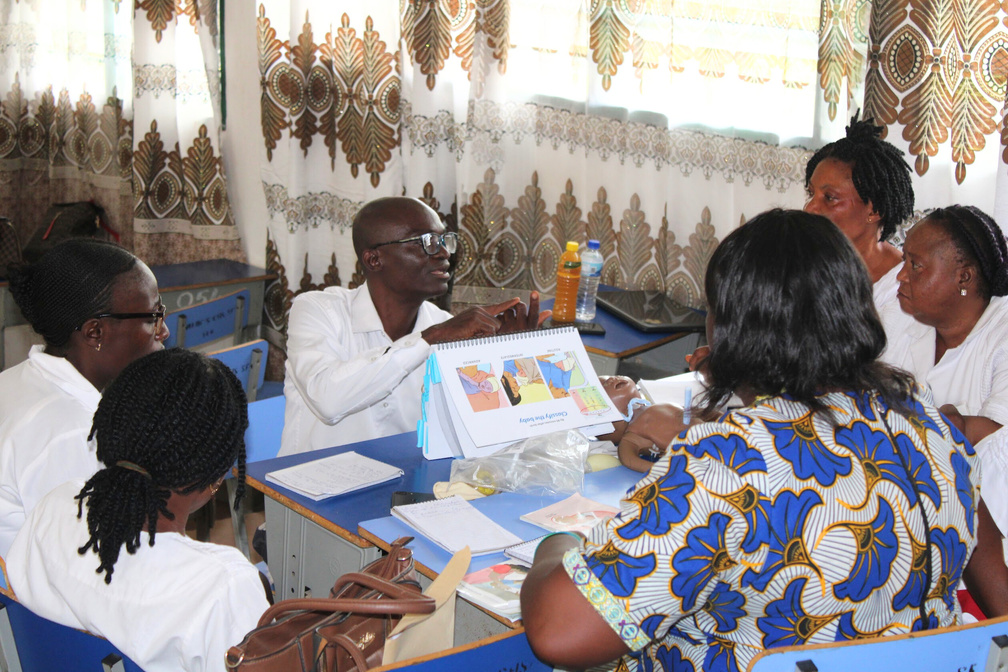
Conference Goal - Enhancing Skills
To help improve the quality of care for mothers and children, members of Together for Global Health, which includes organizations such as Helping Children Worldwide, HIRF, Tenki for Born, and the Christian Health Association of Sierra Leone, hosted a multi-day train-the-trainer conference in Bo in January 2024. The Maternal and Newborn Health Conference and Training Program consisted of a two-day intensive training at the School of Midwifery in Bo, led by the Embrace International Foundation team from Canmore, Canada, followed by a five-day conference at the College of Medical Sciences at Njala University.
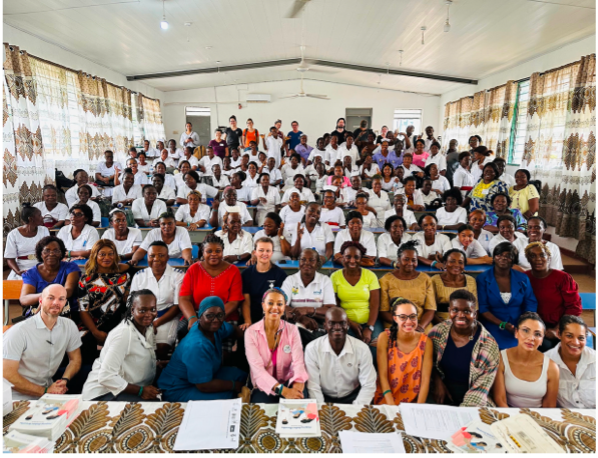
Over 90 midwives and healthcare professionals participated from Peripheral Healthcare Units, government referral hospitals, and faith-based hospitals and clinics.
One midwife shared, “I am so grateful I was part of this training. It is very relevant. This will help us to remember things that we have forgotten and that we need to know.”
The conference focused on the Sierra Leone Ministry of Health approved Jhpiego and Helping Mothers Survive Helping Babies Breathe,
Essential Newborn Care, and Bleeding after Birth Complete and Prolonged and Obstructed Labor curriculum. These sessions were designed to provide the essential skills for managing emergency obstetrics and neonatal procedures. Discussing the training conference Master Trainer, Kari Mason remarked, “Postpartum hemorrhage is one of the leading causes of maternal mortality in the country and that is something we can help prevent. It means a lot to me to help the midwives of the country have better tools to manage it.”
In addition, there were conference sessions on Leadership and Healthcare Management, Compliance with Healthcare Laws, Self-care, and Compassionate Service Delivery.
Positive Impact Beyond Conference
“Our highest measure of success lies in the feedback we have received each week since the conference’s conclusion. Our Rising Trainers consistently conduct training sessions at their hospitals and clinics, passing on their skills and knowledge independently, without any funding requests. On the last day of our conference, we identified ten facilities whose participants excelled in our conducted training. To support them, we provided these facilities with the training equipment and tools used during the conference, encouraging them to share their acquired knowledge with colleagues. The result – reports and photos arrive every week, showcasing highly motivated nurses conducting mini trainings at their respective facilities. This outcome aligns perfectly with our initial hopes and serves as the yardstick for measuring the success of this training conference,” concluded Garnem.
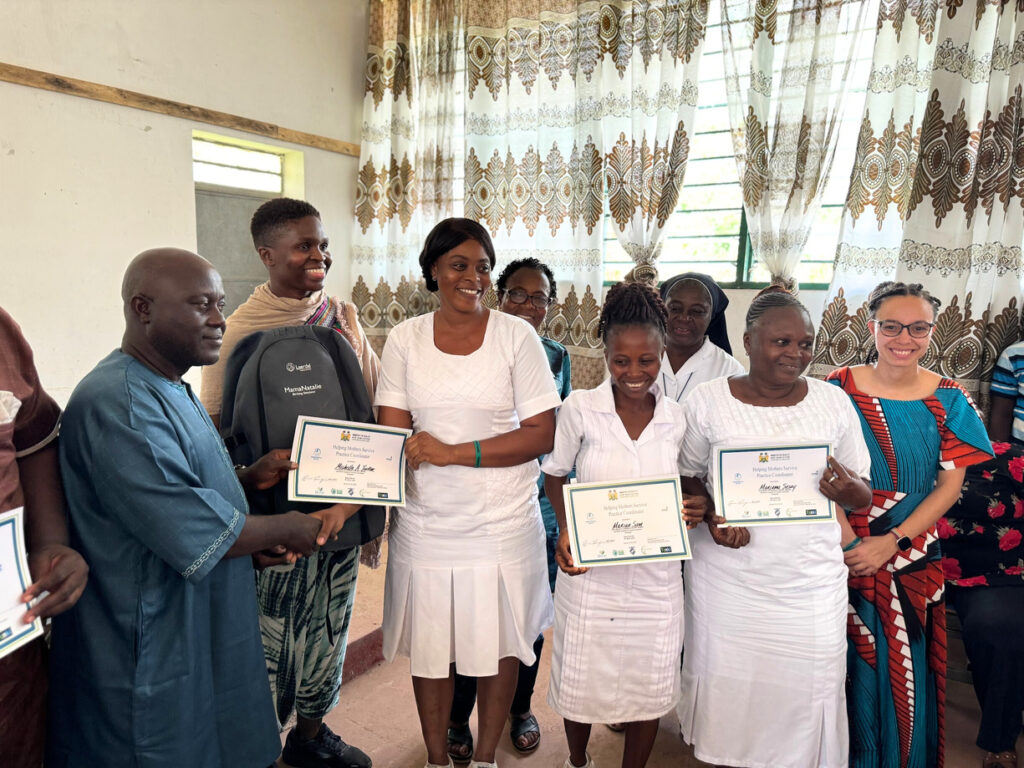
Hear firsthand from the participants at the training.
Due to the success of our efforts in Bo, we have been requested to conduct similar training in other regions across Sierra Leone. There is a high need for more neonatal emergency care training. To support our efforts please click here.
